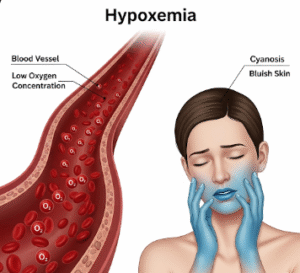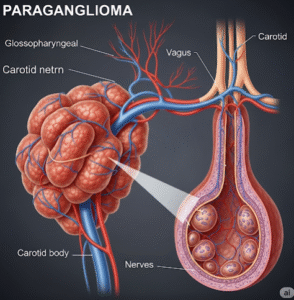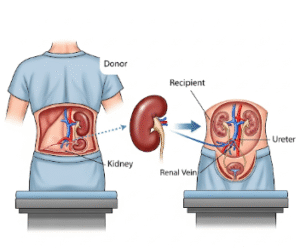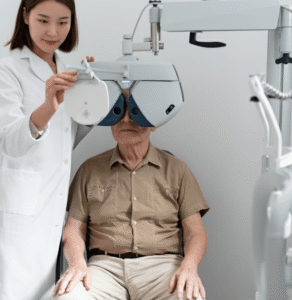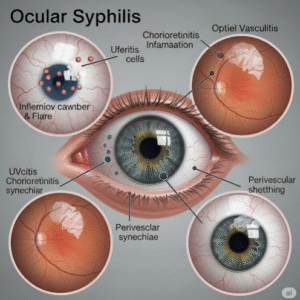Overview
Goiter is an abnormal enlargement of the thyroid gland, located in the neck, which may cause swelling and visible neck enlargement. While some goiters are harmless, others can lead to difficulties in breathing, swallowing, or indicate underlying thyroid dysfunction. South Korea provides comprehensive care for goiter, including diagnostic imaging, medications, and surgical interventions when necessary.
What is Goiter?
A goiter occurs when the thyroid gland grows in size due to increased stimulation, often as a response to insufficient thyroid hormone production (hypothyroidism) or other thyroid disorders. Goiters may be diffuse (uniform enlargement) or nodular (lumps or nodules within the gland).
Symptoms
- Visible swelling or lump at the base of the neck
- Tightness or pressure in the throat
- Difficulty swallowing or breathing
- Hoarseness or voice changes
- Coughing or choking sensation
- Rarely, symptoms of hyperthyroidism (rapid heartbeat, weight loss) or hypothyroidism (fatigue, weight gain)
Causes
- Iodine deficiency: The most common cause worldwide
- Autoimmune thyroid disease: Hashimoto’s thyroiditis or Graves’ disease
- Thyroid nodules: Benign or malignant growths
- Inflammation of the thyroid (thyroiditis)
- Genetic factors or familial predisposition
Risk Factors
- Female gender (more common in women)
- Age over 40
- Family history of thyroid disease
- Dietary iodine deficiency
- Exposure to certain medications (e.g., lithium) or radiation
Complications
- Difficulty breathing or swallowing if the goiter compresses the esophagus or trachea
- Thyroid dysfunction: hypothyroidism or hyperthyroidism
- Cosmetic concerns and psychological stress
- Rarely, thyroid cancer in nodular goiters
Prevention
- Adequate iodine intake through diet or supplements
- Regular thyroid function testing, especially in high-risk individuals
- Early treatment of thyroid disorders to prevent gland enlargement
Treatment Options in Korea
South Korea offers advanced evaluation and management of goiter through endocrinologists, surgeons, and imaging specialists:
- Diagnosis
- Blood tests: TSH, T3, T4 levels to assess thyroid function
- Ultrasound: To detect nodules and gland structure
- Fine needle aspiration (FNA) biopsy: To check for malignancy
- CT or MRI: For large goiters affecting breathing or swallowing
- Medical Therapy
- Thyroid hormone replacement: For hypothyroid-related goiter
- Antithyroid medications: For hyperthyroid-related goiter
- Iodine supplementation: In cases of deficiency
- Surgical Intervention
- Thyroidectomy: Partial or total removal of the thyroid for large, symptomatic, or malignant goiters
- Minimally invasive and robotic-assisted thyroid surgeries available in hospitals such as Severance Hospital, Samsung Medical Center, and Asan Medical Center
- Post-Treatment Care
- Regular thyroid function monitoring
- Hormone replacement therapy if thyroid removed
- Follow-up imaging for nodule recurrence
- Lifestyle guidance and dietary management


